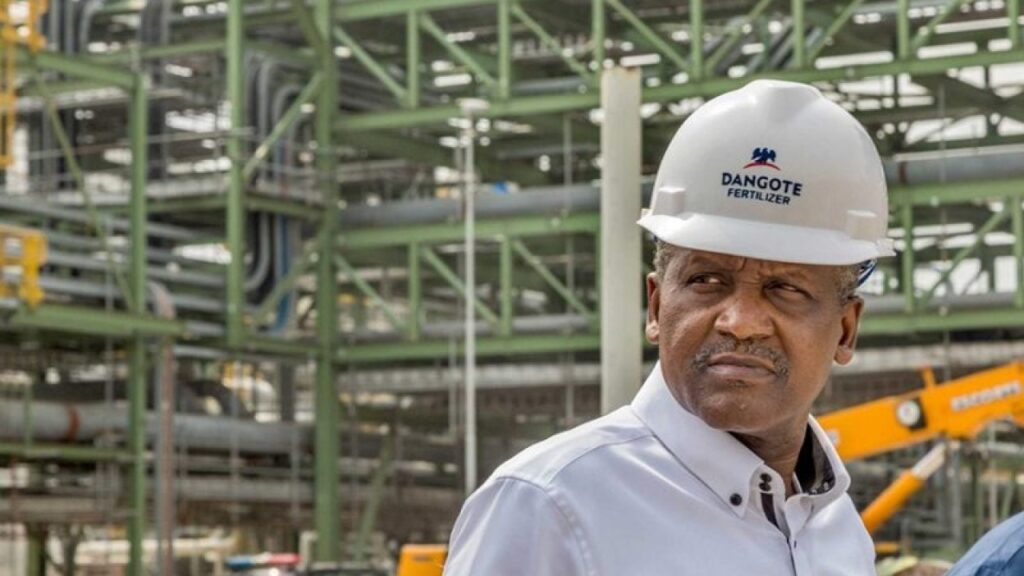President of the Dangote Group, Alhaji Aliko Dangote, has urged President Bola Tinubu to include refined petroleum products in the list of banned imports under the Federal Government’s Nigeria First policy. His proposal, however, was met with strong resistance from oil marketers and energy experts.
The Nigeria First directive prohibits government agencies from procuring foreign goods or services that can be produced locally. It aligns with President Tinubu’s broader strategy to stimulate domestic production and reduce dependency on foreign imports
Speaking at the Global Commodity Insights Conference on West African Refined Fuel Markets, co-hosted by the Nigerian Midstream and Downstream Petroleum Regulatory Authority (NMDPRA) and S&P Global Insights, Dangote insisted that allowing fuel imports was killing local refining efforts.
According to him, Nigeria is facing dumping of toxic and substandard petroleum products, some of which would be banned in Europe or North America. Dangote stressed that unfair competition from Russian-subsidised fuel is harming local pricing and threatening long-term investments.
“Due to the price caps on Russian petroleum products, discounted petroleum products produced in Russia or with discounted Russian crude find their way to Africa, severely undercutting our local production,” he said.
Dangote Refutes Monopoly Concerns, Cites Export Data
Dangote dismissed monopoly concerns, arguing that critics with the capacity to invest locally often choose to send their wealth abroad. He revealed that Nigeria had exported over 1.35 billion litres of petrol within 50 days, indicating his refinery’s capacity to meet local demand.
“Today, Nigeria has actually become a net exporter of refined products,” Dangote added.
However, marketers and stakeholders disagree with Dangote’s proposal. Chinedu Ukadike, the National Publicity Secretary of the Independent Petroleum Marketers Association of Nigeria (IPMAN), warned that banning imports would spell doom for the sector.
“We should continue to import even as we buy locally. We will not support that idea,” Ukadike said.
Similarly, Billy Gillis-Harry, President of the Petroleum Products Retail Outlet Owners Association of Nigeria (PETROAN), stated that banning imports contradicts free market principles. He stressed the need for multiple sources of energy to prevent price manipulation and scarcity.
“There’s no reason why any one company should dominate the entire industry,” Gillis-Harry argued.
Legal and Economic Experts Weigh In
Professor Dayo Ayoade, an energy expert from the University of Lagos, emphasized that a ban on fuel imports would encourage monopolistic tendencies and contravene international trade laws.
“We can’t rely solely on Dangote refineries. For reasons of energy security and national security, that would be completely unacceptable,” Ayoade noted.
He urged the government to support more refineries and liberalize the downstream sector to improve competition and reliability.
At the NMDPRA event, Dangote also called for the withdrawal of dormant refinery licenses, encouraging more investments in the sector. Interestingly, IPMAN agreed with this position, supporting the revocation of unused refinery licences.
“You can’t obtain a licence to build a refinery and use it to decorate your house,” Ukadike noted.
Dangote’s refinery, with a current capacity of 650,000 barrels per day, is expected to reach 700,000 BPD by December 2025. His recent retirement as Chairman of Dangote Cement is seen as a strategic move to focus more on the refinery and its operations.
Stay tuned to 9am News Nigeria for more Breaking News, Business News, Sports updates And Entertainment Gists.
















